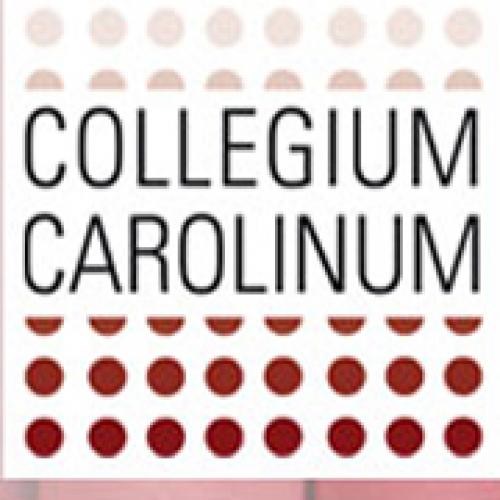Call for Papers: Partisan and Insurgency Movements during the Second World War – The Slovak National Uprising in a Comparative Perspective

Annual conference of the Collegium Carolinum in cooperation with the Institute of Contemporary History Munich-Berlin.
Bad Wiessee, 6-9 November 2014
The partisan movements of the Second World War present an aspect of contemporary European history that up until now has attracted only limited research. Emphasis has been given to interpretations of their significance in terms of military history or the various Nazi counterinsurgency measures. By contrast, there is a lack of studies shedding light on the motivations and political orientations of the partisans, as well ason the social contexts under which the partisan movements arose and were active.
The 2014 annual conference of the Collegium Carolinum has taken the occasion ofthe 70th anniversary of the 1944 Slovak National Uprising, an event that has received little attention outside of Slovak studies, to investigate the conditions for the emergence and the forms of organization of partisan groups. The goal is to compare partisan movements in Slovakia with other resistance groups in Europe during the Second World War.
Partisans are hereby understood as irregular fighting units that conduct a “little war” against an occupying power, and at the same time maintain networks of relationships to those powers engaged in the “large war”. The “small war” has alwayshad a political objective. It is therefore a matter of interest to examine the relationshipbetween the partisan struggle and that of the uprisings led by political resistancegroups (the Slovak National Uprising, the Warsaw Uprising, the Prague Uprising). The aim is also to consider the roles played by partisan groups in post-war European societies within the context of their political objectives.
The following topics are planned for the conference:
1. The motivations of partisan movements and the contexts in which they arose.
Partisans, understood as “followers” of a power engaged in war, are usually regarded as resistance fighters against an enemy occupation. Very often, their activities harbour a political agenda that extends beyond the goal of the military war of liberation and aims towards the establishment of a new political order. In addition to the mainly communist oriented groups fighting against the Nazi occupation, there were also nationally motivated partisan groups (such as in the Ukraine, Poland, and the Baltic States), which, in part, operated in shifting coalitions. At the same time, certain individuals formed into partisan groups solely out of the struggle to survive. Besides escaped prisoners of war and forced labourers, this particularly applies to Jews, who attached themselves to partisan groups or established fighting units on their own. The aim of this panel is to differentiate the motives of the various partisan movements with regard to political contexts and to comparatively classify them in terms of the history of the Second World War.
2. Political resistance, partisan war, and uprisings.
During the final years of the war, especially in Eastern Europe, there was a steadilyflowing transition between irregular operating fighting units and regular combat forces. The partisan struggle should also always be seen in connection with larger acts of resistance, such as the Warsaw Uprising, the Slovak National Uprising, and the Prague Uprising. As such, clarification is required, particularly in the cases of Czechoslovakia and Poland, as to the extent of any links between the actions of partisan groups and plans by respective exile governments or those of local political resistance groups. At the local level, in turn, the relationship between partisans and the civilian population played a great role. This was equally the case with respect to support and recruitment as it was with forcefully requisitioned goods and food, as well as violence committed against civilians not willing to cooperate or those classified as “enemies.” Not least of all, the interplay between the partisan struggle and counter-insurgency actions (including the retaliatory measures by the Germans) needs to be elucidated.
3. The partisans of the Second World War after 1945.
The end of an armed conflict raises the familiar problem of integrating soldiers andother participants in the fighting into the post-war society. If one follows the assumption that partisans often acted in accordance with a political objective and set this in relationship to the political and state transformations as a result of the Second World War, the concrete role of the partisans after 1945 comes into view. Besides the legal treatment of partisans and the thereby related integration process through social welfare measures, analysis should also be conducted into the matter of to what extent the partisans organized themselves. The fate of the partisans is an important indicator in investigating the development of post-war societies. This pertains particularly to the culture of remembrance with respect to the partisans.
Here, an investigation into the actual sponsor groups ofthis culture is called for, as well as an examination of developments reaching beyond 1989. In terms of the period after 1945, legal action concerning the partisan struggle as well as the counter insurgency, especially the prosecution (or non-prosecution) of war crimes, is of particular interest. This is tied to the question of the significance of partisan war and, correspondingly, the presently much-discussed topic of “asymmetric warfare” for the interpretations and modifications of international law and the law of war following the Second World War.
Articles on the three topics relating to Czechoslovakia and other European case studies are welcome. Lectures (20 minutes) can be held either in German or in English.
The intention is to publish the conference proceedings.
Please submit a short outline of your planned lecture (1-2 pages) in either German, Czech, Slovak, or English by 31 May 2014 to:
Collegium Carolinum
Attn: Ulrike Lunow
Hochstr. 8
81669 München
ulrike.lunow@extern.lrz-muenchen.de
Please also visit the website of the Institute of Contemporary History Munich-Berlin.
